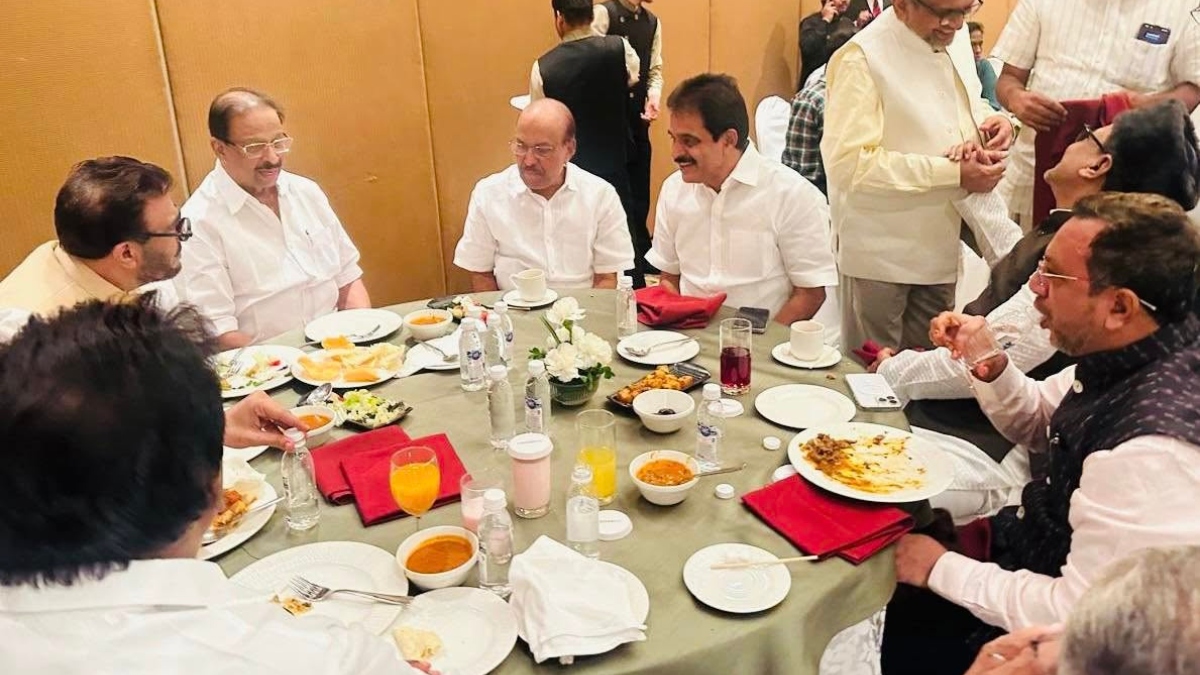Congress revamp in Kerala explained: How community equations and an election year shaped the KPCC leadership change
 K Sudhakaran and KC Venugopal in the company of other UDF leaders | Official Facebook
K Sudhakaran and KC Venugopal in the company of other UDF leaders | Official Facebook
As the AICC announced a new leadership team for the Kerala Pradesh Congress Committee (KPCC), it was evident that the party had carefully weighed its community equations and political priorities through a series of calculated moves. The Congress leadership adopted a step-by-step strategy to execute the transition, though, at one point, the delay in making the announcement gave the impression that the high command was mishandling the situation.
From the outset, the party maintained that any leadership change would be carried out in consultation with K. Sudhakaran. As the first step, the high command sought inputs from state leaders regarding a possible change at the helm. Subsequently, Rahul Gandhi and Mallikarjun Kharge summoned Sudhakaran to Delhi to offer reassurances and communicate the leadership’s decision. Until that point, the party took great care to ensure that Sudhakaran was not publicly embarrassed.
ALSO READ | Sunny Joseph replaces K. Sudhakaran as Kerala Pradesh Congress Committee president
However, following the Delhi meeting, widespread media speculation emerged, interpreting the visit as a signal of Sudhakaran’s imminent replacement. This placed Sudhakaran in a politically awkward position. The veteran leader, who had previously claimed that the party was united under his leadership and that factionalism was a thing of the past, responded by asserting that there were no plans to remove him, that he had received assurances, and that a faction was working to sideline him.
Sudhakaran’s public statements, in turn, put the party high command in a difficult spot. Adding to the challenge was internal criticism from senior state leaders targeting Anto Antony—widely seen as the high command’s preferred candidate for the KPCC president post. These developments added further complexity to the already delicate leadership transition.
Finally, the party high command settled on Sunny Joseph for the top post. While Sunny Joseph may not command the mass appeal that K. Sudhakaran does, his appointment reflects a calculated, two-pronged strategy by the Congress leadership. By elevating Joseph, the party is clearly signalling to the Christian community—particularly the Catholic leadership. This move stems from a growing concern within the party that a significant section of the Catholic voter base, which has traditionally backed the Congress and the UDF, is now drifting toward the BJP. The BJP’s victory in the Thrissur Lok Sabha seat, a known Catholic stronghold, served as a wake-up call.
Furthermore, after the passing of former Chief Minister Oommen Chandy, there was a growing perception that the Congress lacked leaders from the Christian community in its upper ranks. Joseph’s elevation appears to be a response to that gap. At the same time, by replacing Sudhakaran with another leader from Kannur, the party also seems to be acknowledging the unique political dynamics of the region. The CPI(M), Congress’s primary rival in Kerala, is led by leaders from Kannur—namely, Chief Minister Pinarayi Vijayan and CPI(M) state secretary M.V. Govindan. In this context, bringing in Sunny Joseph can also be interpreted as a strategic message to the CPI(M), particularly with the upcoming elections in view.
Significantly, the appointment of a new KPCC president came alongside a broader organizational reshuffle. Here too, one can observe that community representation was carefully considered. Sudhakaran, who belongs to the Ezhava community, has been succeeded as UDF convenor by Adoor Prakash MP, also from the community, replacing veteran M.M. Hassan. Meanwhile, the party appointed P.C. Vishnunadh MLA, A.P. Anilkumar MLA, and Shafi Parambil MP as new working presidents of the KPCC, replacing Kodikunnil Suresh MP, T.N. Prathapan, and T. Siddique MLA. In this reconstitution, the Congress ensured balanced representation across the Nair, Dalit, and Muslim communities—highlighting once again its thinking in terms of community equations while finalizing the leadership roles.
Notably, all key positions in this reshuffle have been entrusted to sitting MLAs or MPs—indicating that the party’s intention to project leaders with proven electoral appeal and the capacity to take on the CPI(M)-led LDF even at its peak. Shafi Parambil is widely regarded as one of the party’s most effective election crowd-pullers in Kerala, while A.P. Anilkumar is seen as a close confidant and strongman of AICC General Secretary K.C. Venugopal in the state. Meanwhile, P.C. Vishnunadh’s elevation to the working president role follows his stint as AICC Secretary—an experience that is likely to help ensure better coordination with the central leadership.
The party's high command also took visible steps to ensure that Sudhakaran did not feel sidelined. In a gesture not extended to any of his immediate predecessors, the AICC acknowledged his contributions while announcing the leadership change and appointed him as a permanent invitee to the Congress Working Committee. This rare honour indicates the high command’s recognition of Sudhakaran’s mass appeal—and a clear understanding that an unceremonious exit could trigger unrest within the party ranks.
India